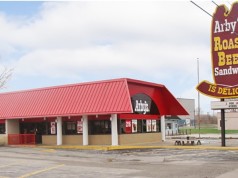WASHINGTON, D.C. – June 26, 2015 – (RealEstateRama) — Landowners looking to make the most of their land can support local hunting traditions and economy, improve their land, and get paid to do it through the Department of Natural Resources’ Hunting Access Program. The DNR encourages landowners to consider enrolling their lands in the program, which provides private-land hunting opportunities in southern Michigan and the eastern Upper Peninsula. Landowners with at least 40 acres are eligible to enroll.
Michigan’s Hunting Access Program (HAP) was created in 1977 to increase public hunting opportunities in southern Michigan, where 97 percent of the land base is privately owned. Landowners enrolled in the program receive an annual payment, up to $25 an acre, for allowing hunters to access their lands. HAP, one of the oldest dedicated private-lands public-access programs in the nation, provides access to quality hunting lands close to urban properties.
Using funds from the new hunting license package, a new United States Department of Agriculture grant, and the U.S. Fish And Wildlife Service Wildlife and Sport Fish Restoration Program, the DNR – in collaboration with Michigan Department of Agriculture and Rural Development and local conservation districts – plans to continue expanding the program over the next three years.
According to DNR wildlife biologist Mike Parker, “Providing access to hunting lands that are close to home is critical for supporting Michigan’s strong hunting heritage. Our commitment to providing access has more than tripled the number of farms enrolled in HAP the past three years. We now have over 140 farms and nearly 16,000 acres available for public hunting.
“HAP is also good for the economy,” Parker said. “Hunters taking trips to HAP lands contribute $1.7 million annually to Michigan’s economy. The majority of the HAP hunter trips are only 25 miles from the hunter’s home, making HAP lands extremely accessible and close to home.”
Landowners have the ability to choose which types of hunting are allowed on their lands. Hunting options include:
All hunting
Youth and apprentice hunting only
Small game hunting only
Deer hunting only
Sharptail grouse hunting only
Landowners may choose more than one option, such as deer and turkey hunting only. Maximum payments will be given for all hunting or youth and apprentice hunting options.
In order to manage the number of hunters using HAP lands at any one time, hunters are required to register to hunt each time they visit the property. The landowner can select either a mandatory registration at their home or a hunter self-registration box, which the DNR will provide and install. The maximum number of hunters allowed on the property is determined by the total acreage, as well as the habitat type. Leases are for a two-year period, with annual payments made each spring.
To ensure landowner and hunter satisfaction, HAP offers landowner liability protection. Public Act 451 of 1994 addresses the concerns some landowners have over sharing access to their land. In addition, HAP lands are patrolled by conservation officers, with an increased focus on patrolling during the busy fall hunting season.
Visit www.michigan.gov/hap to learn more about the program and to see a current list of private lands available for hunting in Michigan. The HAP Web page includes details about enrolled properties, including types of hunting allowed and aerial photos of the properties.
The Michigan Department of Natural Resources is committed to the conservation, protection, management, use and enjoyment of the state’s natural and cultural resources for current and future generations. For more information, go to www.michigan.gov/dnr.
Contact: Mike Parker, 517-641-4903, ext. 228 or Holly Vaughn, 313-396-6863




